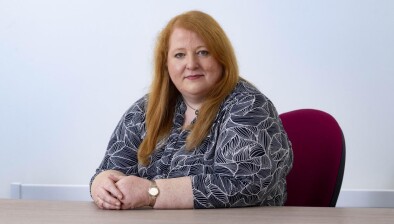Woman to make mortgage payments until 90 after landmark PIA case

The High Court has approved a personal insolvency arrangement (PIA) that will see a 54-year-old woman continue to make mortgage repayments on her family home until she is 90 years of age.
Mr Justice Mark Sanfey approved the PIA in respect of Esther Kirwan from Moycarkey, Thurles, Co Tipperary, in what is a regarded as an important test case in the area of personal insolvency.
The court heard that Ms Kirwan, a single shop assistant who lives alone in a three-bedroom bungalow, has debts of €108,000.
Of this, €83,000 is owed to Start Mortgages in respect of her mortgage on her home, which is valued at €145,000. The remainder is owed to AIB for loans advanced to her former business and Revenue.
Under the terms of the PIA, her mortgage will be restructured. She will make monthly payments of €214 for the next 420 months to cover the interest on the mortgage. This means she will continue to make payments on her mortgage until she is 90.
Should she die before reaching that age, the balance of what is owed to Start will be paid from the proceeds of sale of her estate.
Under the PIA, the loan is not being reduced and will be payable on the expiry of the 420-month term or on her death, whichever occurs first.
The PIA was supported by Start, and none of her unsecured creditors voted against the proposal.
However, last year the Circuit Court refused to approve Ms Kirwan’s proposed PIA because it was uncomfortable with the possibility Ms Kirwan might be compelled to sell her home to satisfy a mortgage debt.
The PIA, the lower court held, did not provide for her solvency after the expiry of the 420-month term.
That decision was appealed to the High Court.
In his judgement, Mr Justice Sanfey said that it was an appropriate to approve the PIA and not override the wishes of the debtor, her professional advisors and her creditors.
The judge said this was a test case, as the issues of proposed extensions to mortgage terms has been raised in many other insolvency actions, which would have been heard sooner only for the Covid-19 pandemic.
The judge also said this case was different from the case of 69-year-old Ann Fennell, whose PIA was rejected by the court.
That proposed PIA involved her paying a mortgage until she was 98 years of age and was, the judge said, “strenuously opposed” by her largest creditor, Ulster Bank.
Noting submissions from Keith Farry BL, acting for Ms Karwan’s PIP, the judge said that, in her case, no such opposition existed against her PIA.
Mr Farry submitted that as well as their being no creditor opposition to the PIA, Ms Kirwan doesn’t have enough money to rent or enough equity in her home to trade down.
She was not eligible for a mortgage to rent scheme or for social housing.
Even if she qualified the mortgage payment included in the PIA is less than social housing rent.
In his decision, the judge said that, in Ms Kirwan’s case, the PIA raised the “nightmare scenario” that Ms Kirwan, who wants to remain in her home for the rest of her life, could, at the end of the restructured term, end up being forced to sell her home to discharge the capital sum due on the mortgage.
In such a scenario she could, at 90 years of age, find herself with insufficient equity to buy a new home or provide a suitable level of care in her advanced years.
However, the court had to cognisant of the fact that it was difficult to see what options were available to her if the PIA was not approved, he said.
The PIA had been constructed with care, and expertise by the PIP and it complies with the relevant insolvency legislation.
No creditor, despite the fact that a better outcome was available to them if she was adjudicated a bankrupt, had voted against it.
There could be no doubt that she understands the implications of the PIA notwithstanding that she could end up in an unfortunate situation, the judge added.








